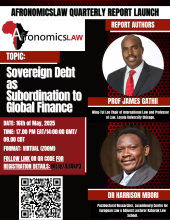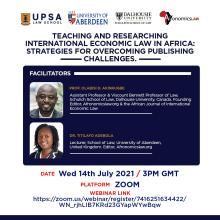Invitation: Afronomicslaw Quarterly Report Launch: Sovereign Debt as Subordination to Global Finance
Join us for the launch of Afronomics Law's latest quarterly report, "Sovereign Debt as Subordination to Global Finance", by Prof. James Gathii and Dr. Harrison Mbori.

